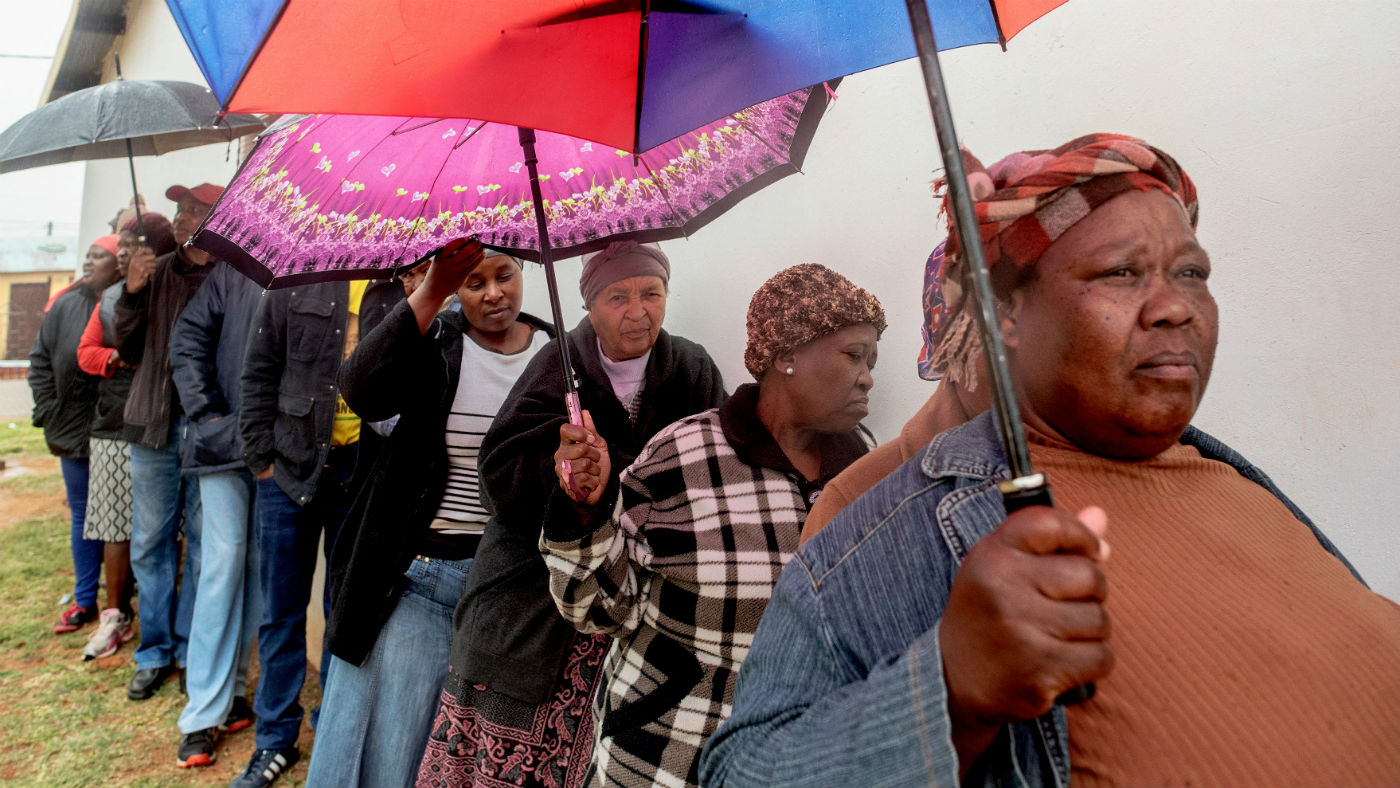South Africa election: polls close in major test for ANC
25 years after ANC swept to power, Nelson Mandela’s party faces toughest election yet

A free daily email with the biggest news stories of the day – and the best features from TheWeek.com
You are now subscribed
Your newsletter sign-up was successful
South Africans have gone to the polls in what is expected to be the most hotly contested election in the country’s democratic history.
In the 25 years since the end of apartheid ushered in the first free and full elections in the country, the African National Congress (ANC) has emerged victorious with a sizeable majority in every single election.
“But the party of Nelson Mandela faces widespread apathy among voters born after apartheid, known as the "born-free" generation,” says CNN’s David McKenzie.
The Week
Escape your echo chamber. Get the facts behind the news, plus analysis from multiple perspectives.

Sign up for The Week's Free Newsletters
From our morning news briefing to a weekly Good News Newsletter, get the best of The Week delivered directly to your inbox.
From our morning news briefing to a weekly Good News Newsletter, get the best of The Week delivered directly to your inbox.
President Cyril Ramaphosa has promised voters he will crack down on corruption in the party, following years of scandals associated with his predecessor Jacob Zuma’s time in office which dented the ANC’s support.
“The vote is partly a referendum on Ramaphosa, whose personal popularity has consistently polled higher than his party’s,” says Norimitsu Onishi in the New York Times. “Many of the ANC’s traditional supporters approve of him, polls show. But they question whether he can outflank powerful party rivals and root out the endemic corruption that has come to define the ANC.”
Along with corruption, there is growing frustration with a lack of progress 25 years after Nelson Mandela swept to power at the end of white minority rule in 1994.
The BBC reports “young people queuing to vote have been speaking of their difficulties in finding jobs, with unemployment at 27%”, and youth unemployment a staggering 54%.
A free daily email with the biggest news stories of the day – and the best features from TheWeek.com
A failure to tackle growing racial inequality has also emerged as a key election issue, with a recent World Bank survey showing that the country is the most unequal on Earth, with South Africa's richest households almost 10 times wealthier than poor households.
Opinion polls suggest the ANC will win a majority of the 400 seats in the National Assembly, but analysts have predicted its margin of victory will fall again.
The ANC won 62% of the vote in 2014’s parliamentary election, down from 2009 and far short of its best result, 69% in 2004 under President Thabo Mbeki.
“Analysts have put that falling support down to corruption allegations against government officials, a slowing economy with one of the highest unemployment rates in the world, and demands from black citizens for more equitable distribution of land” reports Reuters.
It’s also facing the challenge of an insurgent radical party from the left, led by the charismatic former ANC member Julius Malema.
His Economic Freedom Fighters (EFF) who “call for radical economic transformation, including the nationalisation of banks and mines, as well as the expropriation of white-owned land without compensation, have found fertile ground with many young black South Africans,” says Christopher Clark for Al Jazeera.
“Unlike older generations, this demographic also has less of a sense of loyalty to the ruling African National Congress party, based on its past liberation history” says Clark.
“Sustained inequality has, in part, given rise to leftist parties like the EFF, which helped drive the agenda on land expropriation in South Africa,” says McKenzie. “Their promise of land and jobs for their largely urban poor supporters is a strong draw, though not politically realistic in the short term.”
To redress the past, land redistribution and restitution has been a stated priority of the ANC-led government, but this forced tack to the left has caused jitters among investors, who are vital to getting the country’s economy back on its feet.
Much will depend on the ANC’s margin of victory and its hold over some of the country’s richest provinces.
City Press says a poor voter turnout could benefit the ANC, which could push its support back up to 61%, according to a recent Ipsos poll reported by the Daily Express.
“A significant win nationwide could hand Ramaphosa a popular mandate in his anti-corruption drive,” says the New York Times. “But a dip below the symbolically important threshold of 60% — which the ANC has never dropped beneath — could embolden his rivals within his party, many of whom have close ties to Zuma”.
Results are expected to be announced on Saturday.